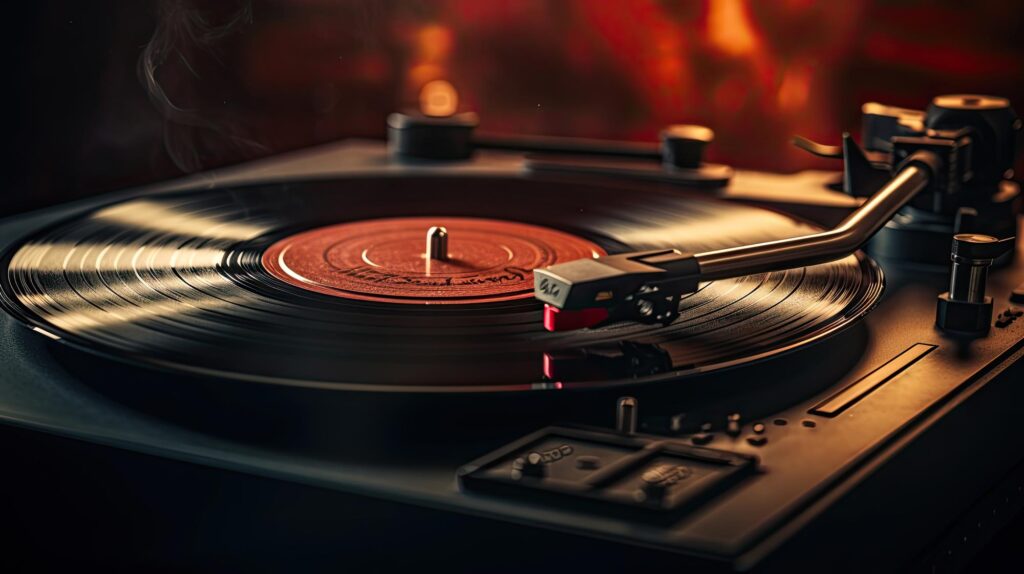Learning to DJ Empowers Teens: Creativity, Confidence, Connection

In today’s fast-paced digital world, teens are constantly seeking meaningful ways to express themselves. Learning to DJ and produce music digitally is emerging as one of the most powerful and transformative avenues for adolescent development—and it’s not just about spinning tracks. At ArtHaus, our DJ and digital music production classes give teens the tools to build confidence, sharpen their minds, and forge community through sound.
Cognitive Growth Through Music Technology
Scientific research shows that musical training improves auditory processing, working memory, and verbal intelligence (Habibi et al., 2018). These benefits extend to digital music as well, where learning to use DJ software and digital audio workstations (DAWs) engages teens’ brains in problem-solving, pattern recognition, and multitasking. When students at ArtHaus begin mixing beats and crafting sets, they’re not just learning an art—they’re developing skills that help them excel in school and beyond.
A Healthy Outlet for Emotions
Teenagers often experience intense emotions, and music provides a powerful outlet. DJing allows them to channel stress and anxiety into something constructive. As de Bruin and Southcott (2019) point out, “digital music-making offers young people a culturally relevant platform for emotional expression and identity formation.” At ArtHaus, teens are encouraged to tell their stories through sound, creating mixes that reflect their moods and personalities.
21st-Century Skills for a Digital Generation
Today’s students need more than just academic knowledge—they need technological fluency, creativity, and collaboration. DJing and music production teach exactly that. According to Tobias (2013), these activities foster critical listening and technical literacy, giving teens a sense of agency in the digital world. Whether a student dreams of a career in the music industry or simply wants to explore a new hobby, our programs at ArtHaus equip them with real-world skills that will last a lifetime.
Building Community Through Music
Music brings people together, and DJing helps teens find their place in the crowd. Whether they’re performing at an ArtHaus event, collaborating with peers, or sharing their latest mix online, students become part of a vibrant, supportive community. As Kruse (2016) explains, participatory music practices like DJing are especially powerful for youth who feel disconnected from traditional music education. At ArtHaus, we welcome all experience levels and styles, ensuring every teen feels heard, seen, and valued.
Join the Movement at ArtHaus
At ArtHaus, we believe that learning to DJ is more than an extracurricular—it’s a journey into creativity, empowerment, and connection. Our expert instructors provide hands-on guidance in a fun, inclusive environment where teens can thrive musically and personally. Whether your teen is an aspiring artist or just looking for a new way to engage with music, our programs offer a space to grow, explore, and shine.
Ready to mix things up? Discover our upcoming Summer Music Program at arthaushudson.com.
References
de Bruin, L. R., & Southcott, J. (2019). DJ education: Teaching digital musicianship through remixing. *British Journal of Music Education*, 36(3), 223–235. https://doi.org/10.1017/S026505171900020X
Habibi, A., Cahn, B. R., Damasio, A., & Damasio, H. (2018). Neural correlates of accelerated auditory processing in children engaged in music training. *Developmental Cognitive Neuroscience*, 29, 82–91. https://doi.org/10.1016/j.dcn.2017.12.003
Kruse, A. J. (2016). ‘They wasn’t makin’ my kind of music’: A hip-hop musician’s perspective on school, schooling, and school music. *Music Education Research*, 18(2), 109–120. https://doi.org/10.1080/14613808.2015.1056130
Tobias, E. S. (2013). Composing, songwriting, and producing: Informal popular music pedagogy. *British Journal of Music Education*, 30(2), 153–166. https://doi.org/10.1017/S0265051713000033
